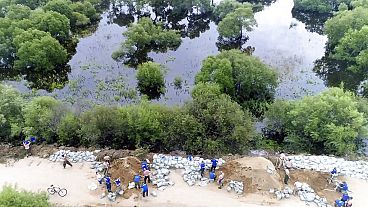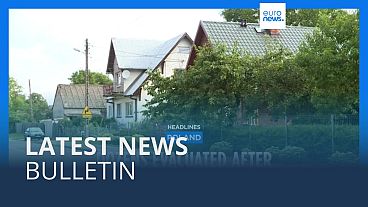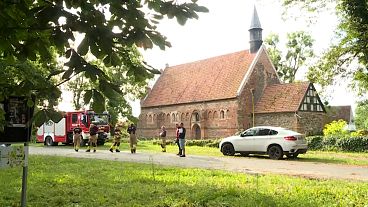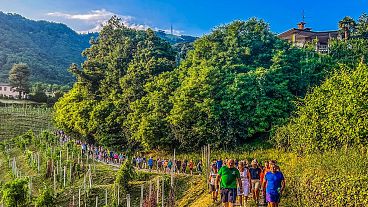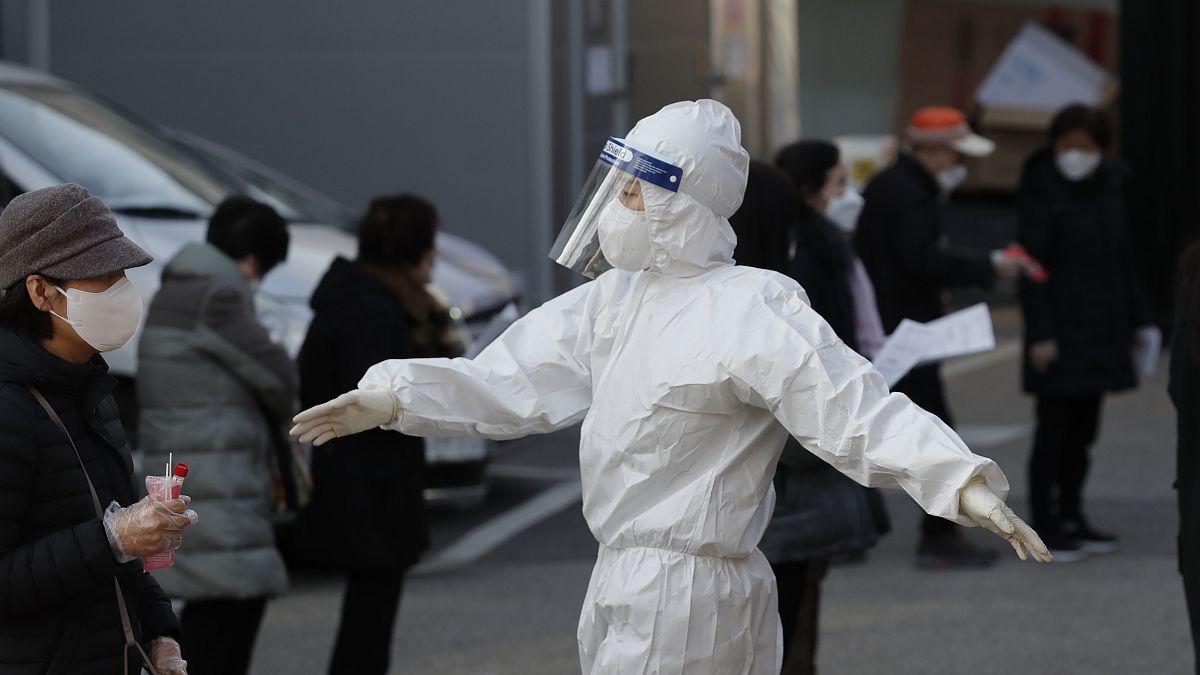South Korea reported its biggest daily jump in COVID-19 cases since the beginning of the pandemic.
South Korea reported their biggest daily jump in COVID-19 cases since the beginning of the pandemic.
The country reported 928 new infections, a much lower number than in European countries seeing thousands of cases a day, but the largest daily increase in the East Asian country.
South Korea has now recorded more than 41,000 infections, with 8,900 cases being reported in the last two weeks. The country's death toll is 578 due to the virus.
The country has been largely viewed as having brought the pandemic under control through aggressive testing and tracing early on but now fears are growing about overwhelmed hospitals in the capital.
The last time the country recorded so many cases was in early March.
The densely populated metropolitan area of Seoul recorded the most cases but infections were also reported in other major urban centres, including Busan, Gwangju, Daejeon, Ulsan and Daegu, a southeastern city that was the epicentre of the spring outbreak.
The government had eased its social distancing restrictions to the lowest tier in October despite experts warning about a viral surge during colder weather, when people spend longer hours indoors.
In recent weeks, officials shut nightclubs and closed restaurants after 9pm but could be forced to take stronger measures including banning gatherings of more than 10 people.
President Moon Jae-in in a Facebook message apologised for his government’s failure to contain the outbreak despite months of measures that hurt the economy.
He pleaded for vigilance, saying the country was going through its “last crisis before the arrival of vaccines and treatment.”
Health officials are also trying to ramp up testing and prevent the virus from being spread by those with mild or no symptoms.
From Monday, rapid antigen tests at emergency rooms, intensive care units and remote hospitals will be covered by the national health insurance.
The country will also deploy more than 800 police officers, troops and civil servants to support contact tracing.

